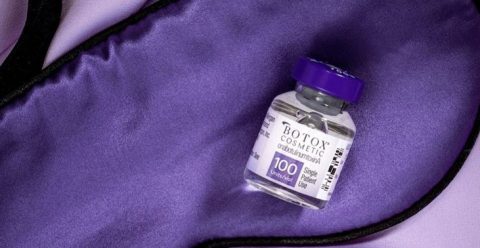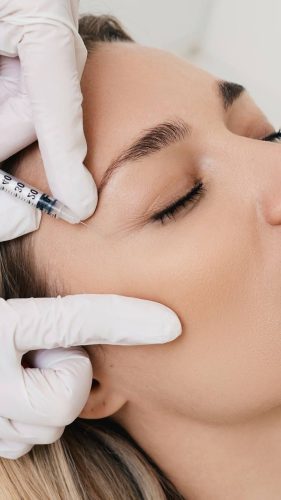Botox Injection Pre-treatment instructions

Before undergoing any cosmetic procedure, it’s crucial to be well-prepared and informed about what to expect and how to ensure the best possible results.
Botox, a popular non-surgical treatment designed to reduce the appearance of wrinkles and fine lines, requires careful pre-treatment preparation to ensure safety, effectiveness, and satisfaction with the outcome.
In this guide, we will outline essential pre-treatment instructions for Botox, providing you with the necessary information to optimize your experience and achieve your aesthetic goals. From medical considerations to lifestyle adjustments, following these instructions will help you maximize the benefits of Botox and minimize any potential risks or discomfort associated with the procedure.
So, let’s delve into the details of what you need to know and do before your Botox treatment.
1. Consultation:
Schedule a consultation with a qualified healthcare provider who is experienced in administering Botox injections. During this consultation, discuss your medical history, expectations, and any concerns you may have.
2. Medical History:
Be prepared to provide your healthcare provider with a comprehensive medical history, including any allergies, medical conditions, medications, or previous cosmetic procedures you have undergone.
3. Avoid Blood Thinners:
To minimize the risk of bruising and bleeding at the injection site, avoid taking blood-thinning medications such as aspirin, ibuprofen, and certain vitamins and supplements (like fish oil and vitamin K) for at least 3 days before your treatment. However, always consult your healthcare provider before discontinuing any medications.
4. Alcohol and Smoking:
Refrain from consuming alcohol and smoking cigarettes for at least 24 hours before your Botox treatment. Both alcohol and smoking can increase the risk of bruising and may affect the efficacy of the treatment.
5. Hydration:
Drink more water in the days leading up to your Botox appointment. Hydrated skin can improve the results of the treatment and minimize any discomfort during the injection process.
6. Skin Care:
Avoid using skincare products containing retinoids, glycolic acid, or other exfoliating agents for a few days before your treatment. These ingredients can increase skin sensitivity and irritation, making the injection process more uncomfortable.
7. Communicate:
Be open and honest with your healthcare provider about your desired outcomes and any concerns you may have. Clear communication will help ensure that you achieve the results you desire.
8. Avoid Sun Exposure:
Limit your exposure to the sun in the days leading up to your Botox treatment. Sunburned or irritated skin can increase discomfort during the injection process and may affect the results of the treatment.

9. Plan Ahead:
Schedule your Botox appointment at least one weeks before any important events or special occasions. While Botox injections typically have minimal downtime, you may experience some temporary swelling, bruising, or redness at the injection sites.
10. Arrive Clean:
Arrive at your appointment with clean, makeup-free skin. This will allow your healthcare provider to properly assess your facial muscles and determine the best injection sites for optimal results
11. Pain Management:
If you’re concerned about discomfort during the Botox injection process, discuss pain management options with your healthcare provider. They may recommend using a topical numbing cream or ice pack to minimize any discomfort.
12. Dress Comfortably:
Wear loose, comfortable clothing to your Botox appointment. This will allow you to relax during the treatment and minimize any potential irritation at the injection sites.
13. Arrange Transportation:
Since you may experience some temporary weakness or numbness in the treated areas immediately after the injection, it’s a good idea to arrange for someway to drive you home from your appointment.
14. Manage Expectations:
Understand that Botox results are not immediate and may take several days to fully develop. Additionally, individual results may vary, so it’s important to have realistic expectations about the outcome of your treatment. usually effect will start after 10-14 days after injection day .
15. Post-Treatment Care:
Ask your healthcare provider about any specific post-treatment instructions, such as avoiding strenuous exercise, excessive heat or cold, and massaging or rubbing the treated areas.
16. Follow-Up Appointments:
Schedule any necessary follow-up appointments with your healthcare provider to assess your results and determine if any additional treatments are needed to achieve your desired outcome.
17. Stay Informed:
Stay informed about the potential risks and side effects of Botox treatment, and don’t hesitate to ask your healthcare provider any questions or concerns you may have before proceeding.
18. Relax and Enjoy:
Finally, relax and enjoy the experience! Botox treatment can be a simple and effective way to refresh your appearance and boost your confidence. Trust in your healthcare provider’s expertise and focus on the exciting results that lie ahead.
19.Next Session Maintenance:
Plan for a follow-up session with your healthcare provider approximately 4-6 months after your initial Botox treatment to maintain the desired effects. Regular sessions can help sustain the smooth appearance of your skin by preventing the reappearance of wrinkles and fine lines as the effects of Botox gradually wear off over time. During this follow-up appointment, your healthcare provider can assess the longevity of your results, make any necessary adjustments to your treatment plan, and recommend additional sessions as needed to prolong the youthful appearance of your skin. By staying proactive and scheduling regular maintenance sessions, you can enjoy long-lasting benefits and consistently refreshed facial aesthetics with Botox.





